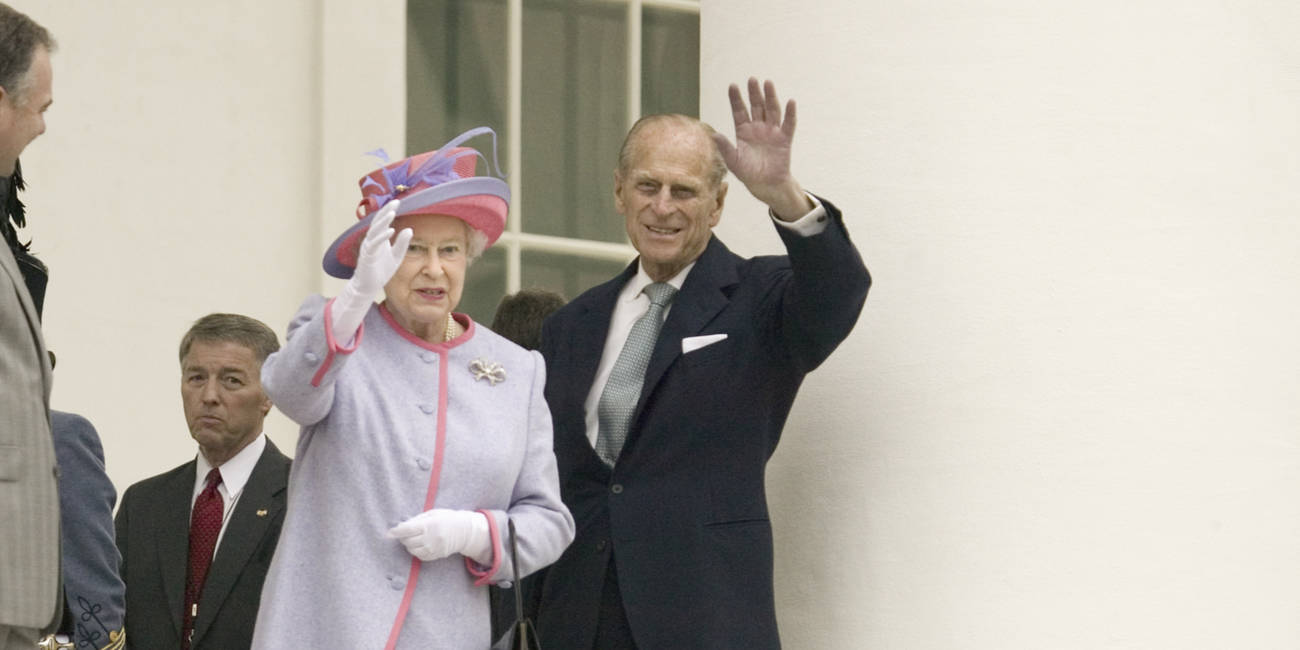Prince Philip, Inadvertent Father Of The Computer Misuse Act, Dies Aged 99

Obit Prince Philip, the Duke of Edinburgh, has died at the age of 99. The Queen's husband died at Windsor Castle this morning.
His death was announced by Buckingham Palace at midday today.
PM Boris Johnson addressed locked-down Brits from the steps of 10 Downing Street, saying: "We mourn today with Her Majesty the Queen." The prince, said Johnson, was the Queen's "strength and stay of more than 70 years."
Prince Philip's most memorable contribution to the world of British technology was a passive one: it was his personal ViewData message box that was targeted by Prestel hackers Robert Schifreen and Steve Gold, as Schifreen related to us in depth back in 2015, on the 30th anniversary of the duo being nicked. The Reg was told at the time that the prince's message box "mostly contained birthday greetings to Princess Diana from random members of the public" and showed no signs of Philip himself using it.
Once Philip learnt of the hack, he is said to have "delivered a blistering laser beam of disapproval from Buck House" at BT, which operated the insecure infrastructure to which Gold and Schifreen were trying to draw public attention. The ultimate result of the Prestel hack was the Computer Misuse Act 1990, whose enforcement has been chronicled here on The Register ever since our illustrious organ first arose in the late '90s.
Less prosaically, the duke kept a weather eye on the uses – and abuses – of technology, especially after the World Wide Web reached Great Britain. Back in 1999, DofE described the internet as "a fantastic development" while touring South Korea that year, but tempered this praise with a warning: "Information technology has produced immense benefits for humanity but only when it is used with honesty and integrity. The opportunities that technology offers to humanity are greater than ever but so are the risks."
As part of his royal duties, he also visited various technological establishments around the country such as Bletchley Park, and was present when the Queen sent her first email in 1976. The British Army had set up an ARPAnet terminal at the Royal Signals Research Establishment in Malvern for the occasion, and Reg reader Paul, who wrote to us in 2006, told us more, quoting the Association for Computing Machinery:
Aside from technology, the Duke of Edinburgh took his social duties as royal consort seriously; as well as the eponymous award for schoolchildren, some have credited him with a leading role at the start of the modern environmentalist movement – a green disposition that the duke passed on to Prince Charles.
Not all was smooth sailing, however. Perhaps borne from 10 years spent in the Royal Navy during and after the Second World War, during which he was first lieutenant (second in command) of the destroyer HMS Whelp, Prince Philip always had a very salty sense of humour which looks decidedly old fashioned to modern eyes.
The BBC rounded up some of his more printable gaffes in 2017 when he retired from royal duties. Among other things of more or indeed, much less amusement value, the duke told Afghan women's education rights campaigner Malala Yousafzai: "Children go to school because their parents don't want them in the house." This to someone who survived a Taliban murder attempt targeted at her precisely because she had been trying to go to school.
Inevitably, fire begat fire and "Phil the Greek" was the subject of more than a few unflattering nicknames during his lifetime, some inspired by his decidedly non-British origins as the son of a German princess who married into the Greek royal family. The duke's approach to all this was neatly summed up in an anecdote published in Private Eye 1543, which we reproduce here because frankly it's too good not to:
The prince was also a literal god, at least as far as the islanders of Yaohnanen in Vanuatu were concerned; Prince Philip was regarded as a deity by about 150 villagers on the Pacific island of Tanna, who apparently believed he was "the embodiment of a returning volcano spirit who had moved far away to marry a powerful woman." The duke sent them an autographed photo of himself. ®
Bootnote
The British news media has occasionally dropped the ball and published obituaries of Prince Philip while the man was still alive – as the Daily Telegraph, among many others, managed to do in 2017.
Gyrostat Capital Management: Why Risk Management Is Not About Predicting Risk
Why Risk Management is Not About Predicting Risk Financial markets reward confidence, but they punish certai... Read more
Gyrostat January Outlook: Calm At Multiyear Extremes
This monthly Gyrostat Risk-Managed Market Outlook does not attempt to forecast market direction. Its p... Read more
Gyrostat December Outlook: The Market Does The Work
Harnessing Natural Volatility for Consistent Returns Markets have always moved more th... Read more
Gyrostat Capital Management: Why Advisers Must Scenario-Plan Both The Bubble And The Bust
The Blind Spot: Why Advisers Must Scenario-Plan Both The Bubble and The Bust In financial m... Read more
Gyrostat Capital Management: The Hidden Architecture Of Consequences
When Structures Themselves Become A Risk In portfolio construction, risk is rarely where we look for it.... Read more
Gyrostat November Outlook: The Rising Cost Of Doing Nothing
Through the second half of 2025, markets have delivered a curious mix of surface tranquillity and instabi... Read more

